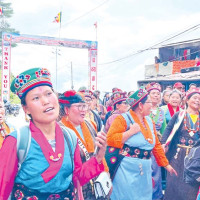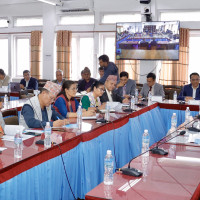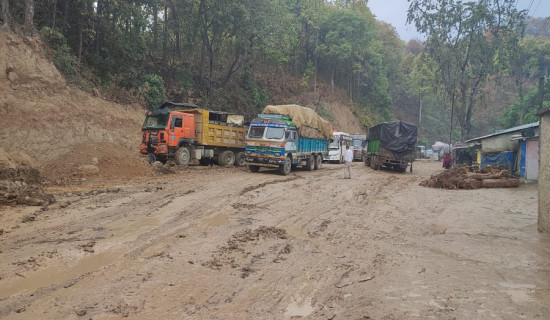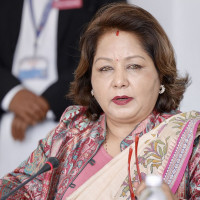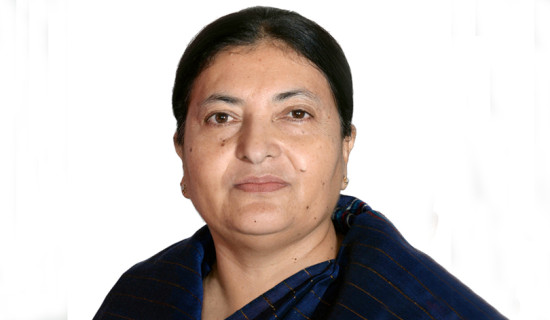- Saturday, 9 August 2025
Pitfalls In Education System
Maheshwor Rijal
Equity in education is one of the catchphrases of many Nepali educators. Education inequality in Nepal has been increasing due to privatization and the widespread expansion of private schools. It is a reprehensible reality today that financially weak parents are forced to send their children to private schools even though the fees of private schools are increasing perversely.
The ugly reality of the education sector today is that educational institutions are becoming profit-making companies, forgetting the true ethic of education as a social service. These pitfalls in our education system make us pathetic as the state is turning a deaf ear to education policy strengthening.
Policymaking
Nepalese educators and educationist are talking many times about equality and equity in education in different national and international forums.
Even our parliamentarian tends to emphasize that education should be free, but it is never free. When going to the library of the university, we find that a lot of Ph.D. level dissertation research has been carried out there and recommended for policy change to minimize the educational gap between private and public schools.
Such kinds of research findings are never taken into consideration by the authorities while making the education policy. Consequently, our school education policy never addresses issues of equality and equity, but rather promotes education business by creating a huge gap and conflict between haves and haves not people in society.
Authorities like our parliamentary leaders, education ministers, politically biased educationist, and owner of private schools are always motivated to establish education as a profit-making cottage industry.
They fail to address the spirit of the public. These are heinous issues deeply rooted in the past, present, and even continuing in the future in our education system. This shows we are heading toward a dark future.
Despite high fees, parents are attracted to admitting private schools as a magic remedy. I firmly believe that school education should be free, it’s the responsibility of the state, not the private sector as they are charging a high fee and earning the money.
The first action should come from political leaders to stop sending their children to private schools. First, leaders should be accountable to the citizen. Enough is enough, it’s time to act wisely breaking the gap in the education system, from a policy level.
Reality
Dreaming of a prosperous future for their children, economically poor parents are flocking to the Gulf countries every day to send kids to private English medium schools in cities.

For this, migrant worker rented their family in the city. Also, Nepalese migrant worker in Golf sees the educational development and realized the importance of education from their own eyes, which eventually directs them to enrol their kids on private academia for good English.
In this sense, the trend of sending toddlers to private schools has been increasing rapidly no matter the economic hardship. My question here is who is responsible for such kind of unwanted hardship? Of course, they are our political leaders, parliamentarian, and policy expert of political parties. I have no words to explain this shameful reality that we are facing today.
Our policymakers are rich people and make policy in their favor. As the result, low-income families are hit the hardest. The election manifesto is a fake document to capture the citizens’ emotions and interests for the sake of voting only and overlooked public education system strengthening.
Consequently, the government’s vision of Prosperous Nepal, Happy Nepali, will never be translated into reality unless immense educational disparities between private and public schools are abundantly resolved.
Let’s see some of our teacher who is teaching in government school sends their kids to private English medium school. Also, unfortunately, government teachers are involved with multiple unions and associations of political parties and their sister organizations.
This shows that faith and trust in government schools are seriously lacking. Such kinds of undesirable outlooks in the Nepalese academia never contribute to achieving equity in education, rather this increases the huge educational gap between the poor and rich class in the society.
Today, public education is overlooked by bourgeois and political leaders because their kids are not part of the government schooling system. We all know that political leaders and rich people in Nepalese society run private schools in the cities.
This creates the gap that education is being used for one’s advantage as a profit-making company.
Reflecting on the political movement and a decade-long people/civic war, thousands of people sacrificed their lives with terrible human causalities dreaming of a prosperous nation.
It is still obvious today that the movement was targeted to throw away the inefficiencies and inequities of the education system, but all efforts went in vain. On the contrary, only the system of governance is changed from Monarchy to the Federal Democratic Republic.
The eradication of the educational gap is limited to slogans only. The country became a federal democratic state but never became an education democratic state. Where does the political commitment vanish?
In 2015, Nepal has signed the Incheon Declaration achieving SDG 4 for ensuring inclusive and equitable quality education and promoting lifelong learning opportunities for all. This is difficult to fulfill what we committed in the international forum unless a huge disparity between public and private schools is resolved.
Many seminars were organized, many commitments were made and many research papers were presented in the national and international forums but reform in public schools is always narrowed. It can never be improved unless high-class people send their children to public school.
Along with this, strong long-term political commitment is a must at the government level. Hence, it is an alarming time for the government should make the mandatory decision to reduce the education disparity among the people.
Every year huge amounts of money are invested in ensuring the quality of government-funded schools. Education institutions are highly directed by the political ethos and appointment is based on political bias rather than meritocracy.
This indicates that political leaders have been lethargic towards the improvement of the education system. For an instance, the head of all constitutional and educational bodies has been appointed by the political parties, which is not a healthy practice.
Of course, the politically appointed person hesitates to go beyond the interest of the political parties and is compelled to work as the cadres of parties. Citizen-centric transformation in education is significantly nominal. Such kind of unwanted politics in the education sector is unacceptable. Who cares about this?
We know that Nepal has committed to quality standards for education in the international forum. For an instance, the education movement including the education for all (EFA), school sector reform plan, and ongoing school sector development plan (SSDP) have invested huge amounts of money in better public schools. That is the way it is high time to improve and expand the public school free of charge.
School is not a business like a shop or private company. Government must take quick action to eradicate such a vicious gap in education between private schools and government schools to achieve the vision of Prosperous Nepal and Happy Nepali. It’s an alarming time to make educational institutions the ideal model of learning ensuring equity and eliminating the disparities.
(Rijal is an M.Phil. researcher in Development Studies at Kathmandu University, School of Education.)
How did you feel after reading this news?




